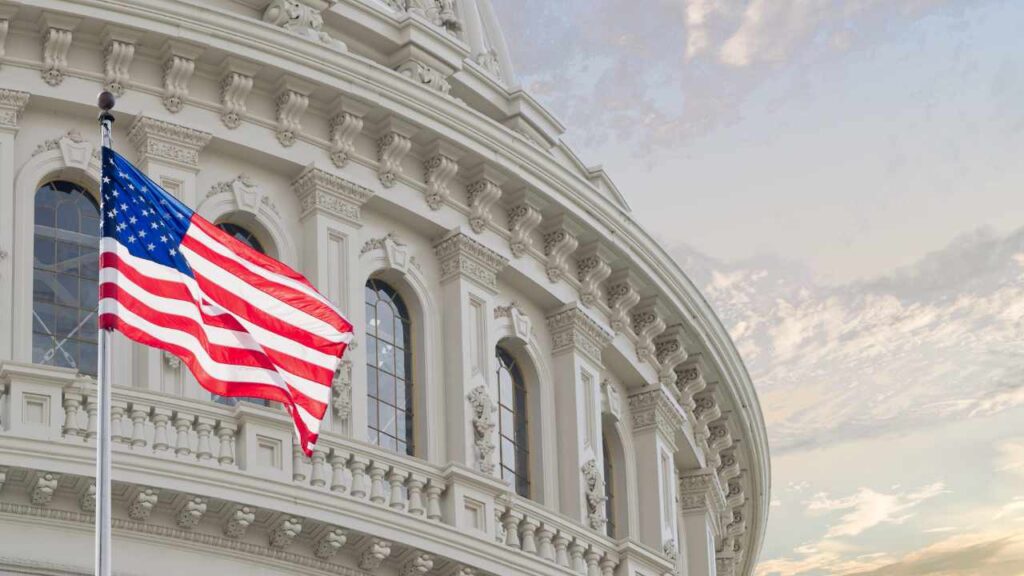FIT21: How the crypto law could improve the situation in the USA

FIT21 is successful in the lower house of the US parliament. Optimists hope that the legal situation surrounding cryptocurrencies in the USA will soon improve significantly. It could be months before the regulation is finally passed. Actual success is not yet certain either.
FIT21: How the crypto law could improve the situation in the USA
A crypto law called the Financial Innovation and Technology for the 21st Century Act ( FIT21 for short ) could significantly improve the tense situation in the USA and thus contribute to the further rise of cryptocurrencies .
The US is currently in increasing disputes over the future of the crypto industry. The House of Representatives may have recently initiated a change. Yesterday, the lower house of the US Parliament passed the FIT21 bill, according to a report from the Finance Committee .
It is a law that, according to supporters, is intended to provide long-awaited regulatory clarity in the USA. At the same time, it is intended to prevent arbitrary government action and abuse of power and improve transparency in the crypto industry.
“The bill also ensures that the United States leads the financial system of the future and remains a center for technological innovation,” writes Patrick McHenry, chairman of the House Finance Committee.
The USA is currently considered particularly questionable as a location for the crypto industry. The Securities and Exchange Commission (SEC) has been characterized by hostile regulation in recent years, as a result of which many companies have moved away.
FIT21 overcomes first hurdle: What happens next?
FIT21 was able to overcome the first hurdle yesterday with flying colors. In the lower house of the US parliament, the law received 279 yes votes in a vote yesterday. 136 MPs voted against the bill. A further 15 people abstained.
This does not guarantee the success of the law overall. The upper house must next confirm the law. It will then be presented to US President Joe Biden, who can either sign it or veto it.
The Biden Cabinet has already announced in a press release that it opposes FIT21. The government considers the draft to be harmful because it would “affect the regulatory structure around digital assets in the United States ,” writes the White House .
According to the Biden cabinet, it is important to strengthen the USA as a location for the crypto industry. Critics, however, accuse the government of doing the exact opposite. Large parts of the industry feel betrayed and treated with hostility by the US government.
It is not expected that the Senate will reject the House’s proposal. Most recently, the Senate passed a resolution against an SEC rule called SAB 121, which hinders cooperation between banks and crypto companies.
Even if Biden uses his veto, the U.S. Congress could successfully pass FIT21 if Parliament achieves the required two-thirds majority in a vote.
How the crypto scene reacts to the draft
Large parts of the crypto scene reacted very positively to the passage of the bill. Coinbase founder and CEO Brian Armstrong praised the regulation as a “win for crypto regulation.”
In his opinion, FIT21 is a big step towards sensible regulation of the crypto industry in the USA. He sees the unexpectedly high level of support among members of the Democratic Party as particularly positive.
71 Democrats voted for the bill in the House of Representatives , 133 representatives voted against it. Among Republicans, the ratio is much more positive for the bill, at 208 to 3.
Lawyer and crypto enthusiast Gabriel Shapiro is much less convinced. In his opinion, the law is trivial and will have little real impact on regulation if passed.
Shapiro criticizes that regulators continue to have too much power over the industry. FIT21 wants to divide the responsibility for overseeing the crypto industry between two authorities: the CFTC and the SEC.
Stay informed, read the latest updates now!
The SEC will continue to deal with cryptocurrencies, which are still considered securities under the law due to a lack of decentralization, while the CFTC will monitor the spot market for cryptocurrencies, which are considered commodities due to successful decentralization.




